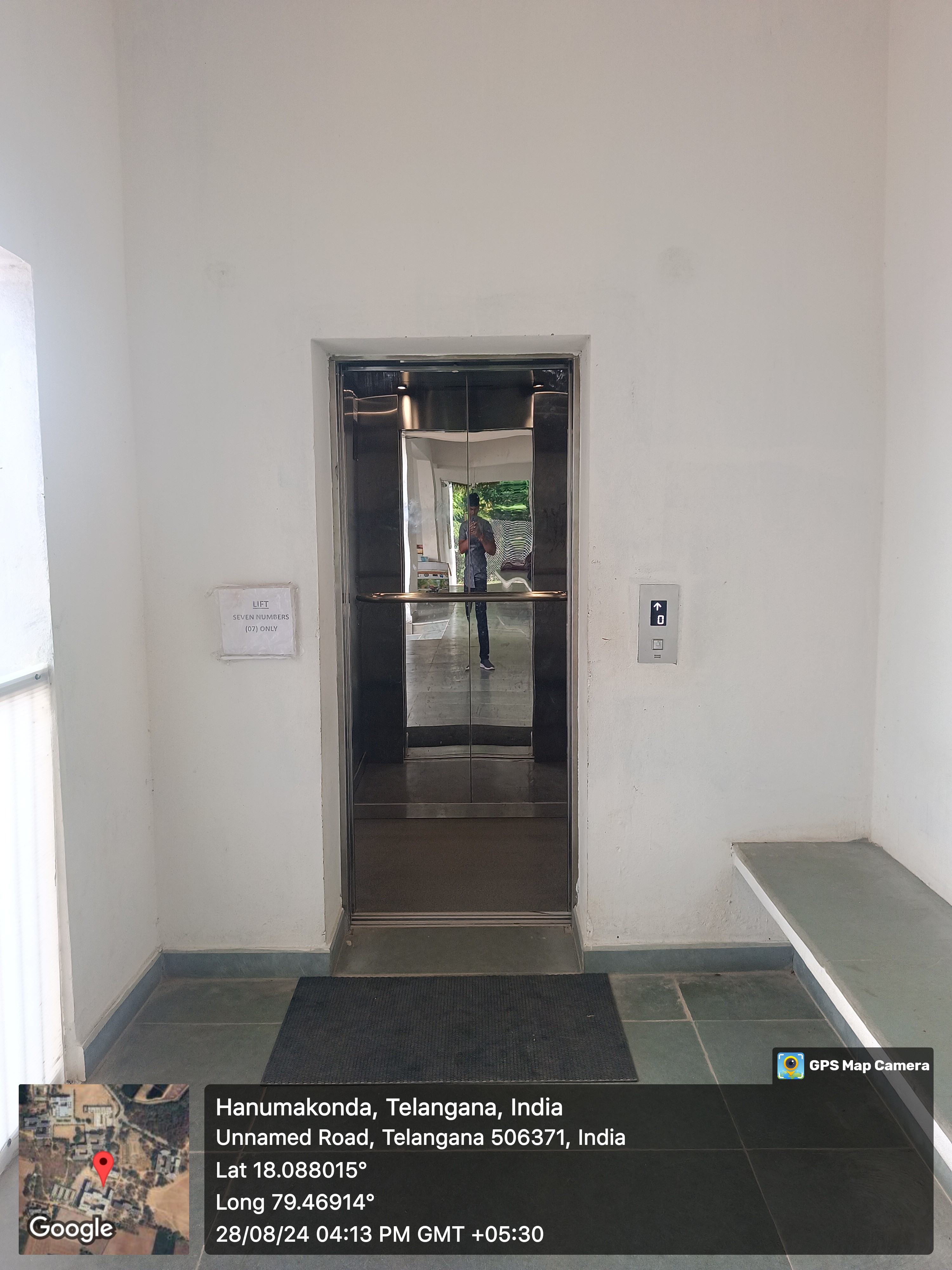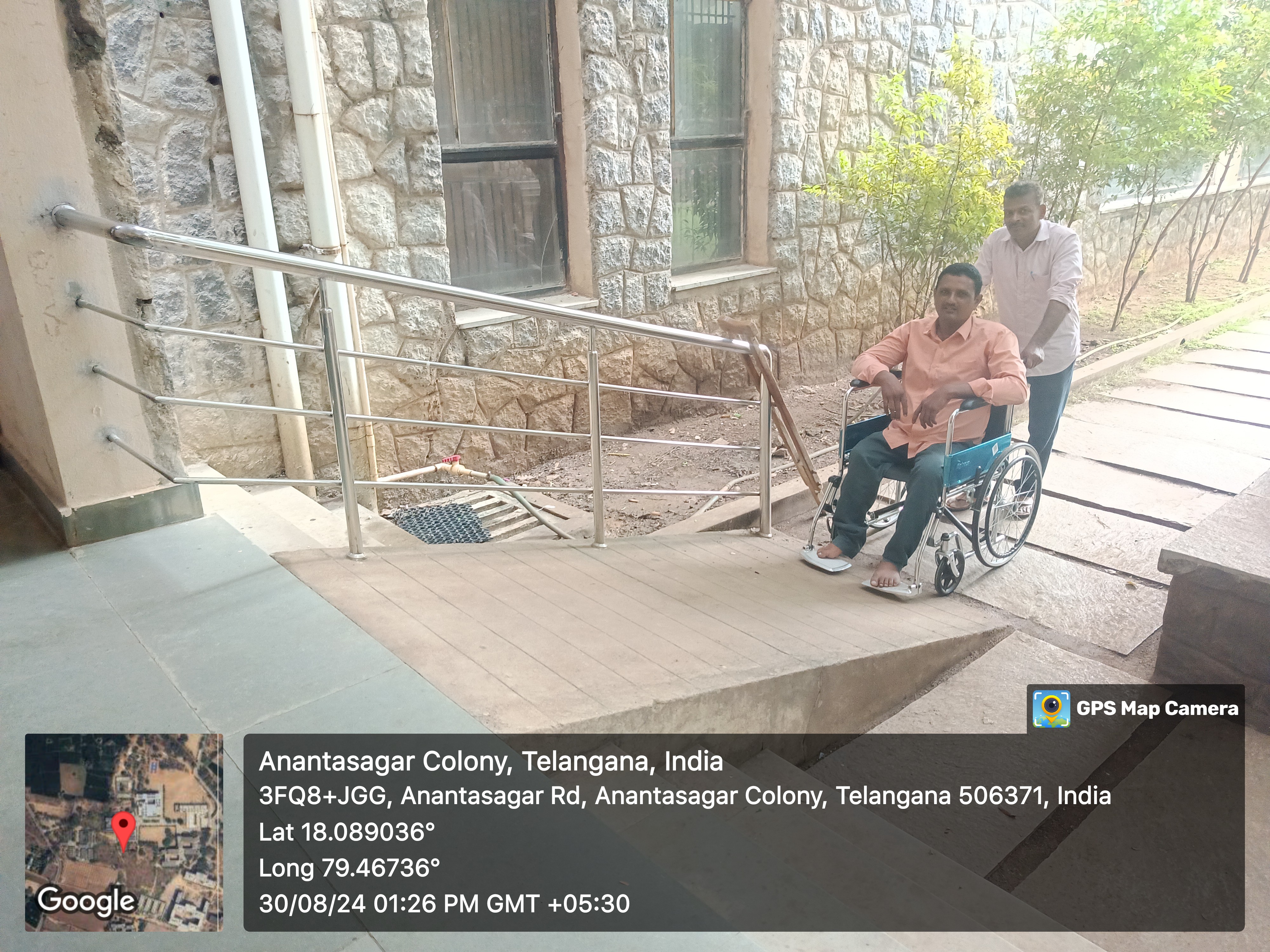SR University (SRU) is deeply committed to reducing inequalities and ensuring that every individual regardless of gender, socio-economic background, identity, or ability has equitable access to education, opportunities, and campus resources. Through inclusive policies, structured governance mechanisms, and comprehensive support systems, the University actively works to eliminate discrimination, promote equal representation, and uphold human rights across academic and administrative domains.
SR University maintains a transparent and inclusive admission policy that ensures zero discrimination in granting access to education. The policy explicitly safeguards students from biases based on caste, religion, gender, nationality, disability, socio-economic background, or any other identity markers. Applications and admissions are systematically tracked to monitor the inclusion of students from underrepresented groups, including:
Admission data is periodically reviewed by academic councils to ensure fairness and diversity in student composition. The University also provides targeted outreach, pre-admission counselling, and support mechanisms to help rural, marginalized, and first-generation learners transition into higher education. Many students from disadvantaged groups receive government-funded scholarships, fee waivers, and support under national social justice schemes.
SRU has established a strong institutional framework to prevent discrimination, protect human dignity, and promote equal participation. Key policies include:
Dedicated statutory bodies including the SC, ST, BC, and Minority Committees, and Internal Complaints Committee (ICC) ensure that grievances related to inequality or harassment are addressed promptly, sensitively, and transparently. The University conducts regular gender- sensitization programmes, diversity awareness workshops, anti-ragging campaigns, and training sessions for faculty, staff, and students to nurture a respectful, inclusive learning environment. SRU’s commitment to gender equality, highlighted under SDG 5, further reinforces its broader mission toward reducing systemic inequalities.
SR University promotes diversity not only among students but also among faculty and staff. Recruitment processes are designed to ensure equitable representation of candidates from underrepresented groups, including women, minorities, and differently abled individuals. The University maintains a culturally vibrant and globally engaged academic community with:
SRU ensures equal pay for equal work, transparent promotions, and fair performance evaluations, supporting a discrimination-free and growth-oriented work culture.
SR University’s commitment to reducing disparities is reflected in the comprehensive academic, financial, and personal support offered to all learners, especially those from marginalized backgrounds.
Mentoring and Academic Support: The University follows a multi-tier mentoring system where faculty mentors guide students on academics, career development, well-being, and integration into campus life. Peer-support networks and counselling services help learners navigate challenges and develop confidence.
Support for Persons with Disabilities (PwD): SRU ensures a fully accessible and barrier-free campus through:
The University provides reasonable accommodation schemes that ensure disabled students receive customized academic support, specialized resources, and equal access to all educational opportunities.
Cultural Integration: To support international students and learners from diverse cultural backgrounds, SRU organizes:
These initiatives foster cross-cultural understanding and enrich the campus learning environment.


SRU’s governance structures are designed to strengthen equity, improve social outcomes, and ensure continuous monitoring of campus diversity.
Grievance Redressal Mechanisms: The University offers multiple channels - including online platforms, dedicated committees, and direct access to Deans and the Registrar - for students and staff to report concerns related to discrimination, academic issues, or well-being. A transparent resolution process ensures timely and fair outcomes.
Financial and Social Support: Students from disadvantaged groups benefit from:
Continuous Evaluation and Commitment to Progress: The University regularly evaluates the impact of its diversity, inclusion, and equity initiatives through internal reviews, data analysis, stakeholder feedback, and policy revision. SRU’s commitment to SDG 10 is further strengthened by transparent reporting practices and a culture of continuous improvement.
SR University remains steadfast in promoting reduced inequalities through inclusive policies, accessible infrastructure, equitable opportunities, and a deeply supportive campus environment. By empowering underrepresented communities, upholding human rights, and embracing diversity across all functions, SRU ensures that every learner and employee can thrive with dignity, fairness, and equal opportunity.